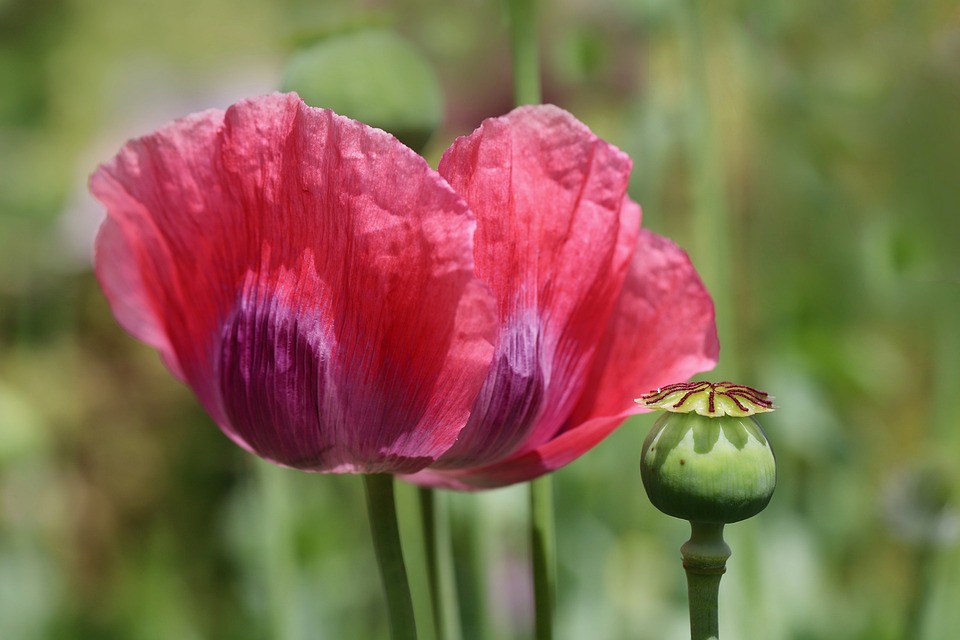Myanmar has been in a state of unrest for nearly two years since the generals seized power in a coup that overthrew the elected government. A report found that opium cultivation in the country increased under the junta government.
A report by the United Nations on Thursday found that in 2022, opium cultivation in Myanmar increased by 33 percent under the junta, reversing the six-year decline. The increase was directly attributed to the political and economic unrest in the country since the coup, according to an official from the UN Office on Drugs and Crime.
“Economic, security, and governance disruptions that followed the military takeover of February 2021 have converged, and farmers in remote, often conflict-prone areas…have had little option but to move back to opium,” said UNODC regional representative Jeremy Douglas.
“Without alternatives and economic stability, it is likely that opium cultivation and production will continue to expand,” said UNODC Myanmar country manager Benedict Hofmann.
The report said the cultivated area in 2022 expanded up to 40,100 hectares as the average estimated yield went up 41 percent to nearly 20 kilograms per hectare. This marked the highest value since the UN agency started to keep records in 2002. Myanmar’s eastern Shan state saw the biggest cultivation at 39 percent.
The report also noted that the value of opium that is produced in Myanmar could go up to $2 billion annually, with the drug getting smuggled out to neighboring countries and reaching the global market.
A group of Myanmar activists and 16 alleged victims of abuse filed a criminal complaint in Germany against the military in another international effort to hold the Myanmar military accountable. The complaint accused the Myanmar generals of inciting genocide against the Rohingya Muslims, as well as the atrocities committed against civilians and those who opposed the coup.
The rights group backing the complaint, Fortify Rights, said Germany was picked because of its recognition of the principle of “universal jurisdiction,” meaning that individuals accused of international crimes could be tried by a national court. The group hopes that German authorities take up the complaint and launch an investigation into the matter.



 Trump Backs Nexstar–Tegna Merger Amid Shifting U.S. Media Landscape
Trump Backs Nexstar–Tegna Merger Amid Shifting U.S. Media Landscape  Israel Approves West Bank Measures Expanding Settler Land Access
Israel Approves West Bank Measures Expanding Settler Land Access  Bosnian Serb Presidential Rerun Confirms Victory for Dodik Ally Amid Allegations of Irregularities
Bosnian Serb Presidential Rerun Confirms Victory for Dodik Ally Amid Allegations of Irregularities  Antonio José Seguro Poised for Landslide Win in Portugal Presidential Runoff
Antonio José Seguro Poised for Landslide Win in Portugal Presidential Runoff  Trump Congratulates Japan’s First Female Prime Minister Sanae Takaichi After Historic Election Victory
Trump Congratulates Japan’s First Female Prime Minister Sanae Takaichi After Historic Election Victory  Trump Allows Commercial Fishing in Protected New England Waters
Trump Allows Commercial Fishing in Protected New England Waters  New York Legalizes Medical Aid in Dying for Terminally Ill Patients
New York Legalizes Medical Aid in Dying for Terminally Ill Patients  Ghislaine Maxwell to Invoke Fifth Amendment at House Oversight Committee Deposition
Ghislaine Maxwell to Invoke Fifth Amendment at House Oversight Committee Deposition  Netanyahu to Meet Trump in Washington as Iran Nuclear Talks Intensify
Netanyahu to Meet Trump in Washington as Iran Nuclear Talks Intensify  China Warns US Arms Sales to Taiwan Could Disrupt Trump’s Planned Visit
China Warns US Arms Sales to Taiwan Could Disrupt Trump’s Planned Visit  Taiwan Says Moving 40% of Semiconductor Production to the U.S. Is Impossible
Taiwan Says Moving 40% of Semiconductor Production to the U.S. Is Impossible  Trump Administration Appeals Court Order to Release Hudson Tunnel Project Funding
Trump Administration Appeals Court Order to Release Hudson Tunnel Project Funding  China Overturns Death Sentence of Canadian Robert Schellenberg, Signaling Thaw in Canada-China Relations
China Overturns Death Sentence of Canadian Robert Schellenberg, Signaling Thaw in Canada-China Relations  US Pushes Ukraine-Russia Peace Talks Before Summer Amid Escalating Attacks
US Pushes Ukraine-Russia Peace Talks Before Summer Amid Escalating Attacks  Trump’s Inflation Claims Clash With Voters’ Cost-of-Living Reality
Trump’s Inflation Claims Clash With Voters’ Cost-of-Living Reality  Japan Election 2026: Sanae Takaichi Poised for Landslide Win Despite Record Snowfall
Japan Election 2026: Sanae Takaichi Poised for Landslide Win Despite Record Snowfall  U.S. Lawmakers to Review Unredacted Jeffrey Epstein DOJ Files Starting Monday
U.S. Lawmakers to Review Unredacted Jeffrey Epstein DOJ Files Starting Monday 































